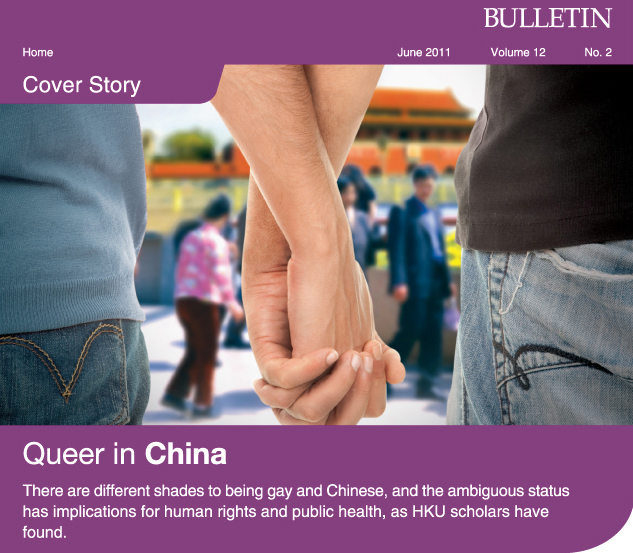
|
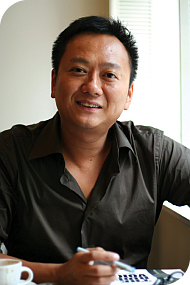 Dr Travis Kong
Dr Travis Kong |

| ||
What does it mean to be a gay Chinese man? Dr Travis S.K. Kong, Assistant Professor of Sociology, who has interviewed gay men in London, Hong Kong and China and studied the issue since the 1990s, says it all depends on where you are. Gay Chinese men in London are often regarded by their white Western counterparts as adolescent, asexual, or effeminate 'Madame Butterfly' types, so their identity as gay men gets mixed up with race issues, he says. Gay men in Hong Kong tend to be defined along economic lines - how much money they have, what clothes they wear, the languages they speak and their social class. They tend to express their gayness through their consumption habits, and their identity is complicated by a lack of space in which they are often confined by a family setting that makes it difficult to come out. Gay men in China are caught in a tangle of pressures, from traditional values that demand they marry and have children, to inconsistent government policy that encourages open talk about sex, but also links homosexuality to HIV/AIDS infections and discourages the celebration of a gay identity. There is also an urban-rural divide in which gay migrant workers are looked down upon by their city counterparts. "There is no universal meaning to being gay," Dr Kong says. "Same-sex desire may be innate, but your identity is socially constructed, that is, when you pick that identity for yourself, it is subject to history, society and culture. In Hong Kong it relates so much to colonialism, family and space. In China it relates to the state and Chinese traditional culture." |
|
Traditional expectations |
|
That culture as it is followed today is conservative and pins men down to partnering with women, yet the traditional ideal of Chinese masculinity has a place for homosexuality. Professor Kam Louie, Dean of the Faculty of Arts and author of a seminal book on Chinese masculinity, says "There's a lot of gayness in traditional Chinese culture and it's taken for granted. It's often explicit in popular culture. The more elite, refined novels tend to shy away from that, but you will still find that when two men sleep together, there are jealousies and possessiveness," he says. The shying away continues today. Although men openly hold hands and live together, it typically does not even cross people's minds that they might be homosexual, says Dr Kong. This enables men to lead a double life, with a family and children on one hand and male lovers on the other. "But if you want to articulate that same-sex desire and declare yourself as gay and live a gay lifestyle, that's a problem." Some gay men are comfortable with a double life because they feel they have obligations as Chinese men to marry and have children, he says, but even then, their gay identity remains hidden. That has repercussions for public health. |
|
Health risks |
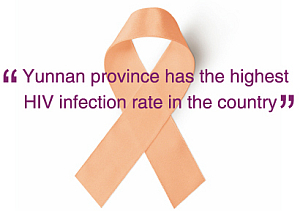 | HIV infections among 'MSM' (men who have sex with men) is increasing at a rapid rate in China and Hong Kong, but the reluctance of men to admit they engage in MSM behaviour makes it difficult to contain the infection, according to Dr Chen Zhiwei, Director of HKU's AIDS Institute. The men are often diagnosed when they go to the doctor for other treatment. "The epidemic is hidden," he says. "We can't clearly define who is homosexual and who is bisexual. People who practice risky behaviour risk their wife's or girl-friend's health as well, so this is why we see a lot of infections initially for MSM, followed by more heterosexual infections and a larger epidemic." |
Dr Chen says the problem is exacerbated by a tendency among some MSM to have multiple sex partners and a reluctance to use condoms even when they are provided for free, and there is a need for more education on the fact that there is still no cure for this deadly disease. Antiviral therapies can slow down the virus's replication and make it harder to infect others, though. Dr Chen would like these therapies given to all HIV carriers, but Hong Kong has so far been cool to the idea and China lacks the infrastructure to distribute the treatment on a widespread basis. There is also a problem in China of reaching patients. Yunnan province has the highest HIV infection rate in the country, but many people live in rural areas, far from hospitals and clinics. Dr William Wong Chi-wai, Clinical Associate Professor of Family Medicine and Primary Care, has been working there and says farmers come to towns on market days and slip off to the woods or public toilets for unprotected MSM. He was involved in a trial project to reach this group by setting up a gay bar in Dali in 2007 that had a mission to promote HIV prevention. The project went well and was taken over by the province's Centre for Disease Control (CDC), but the angry reaction this provoked - national media commentaries and irate emails and letters accused the government of going too far - offered a sad commentary on the difficulties of being gay in China and of containing HIV infections. (The CDC director and mayor in Dali stood their ground and kept the bar going.) |
"The stigma attached to MSM means that when patients have a simple problem like flu or gastroenteritis, they don't like to tell their doctor they are HIV positive. As a result, they are not getting the optimal treatment," says Dr Wong, adding that, "Unless we are more positive and look at this disease as a chronic disease like diabetes or hypertension, we will create a lot of problems in controlling its spread." | 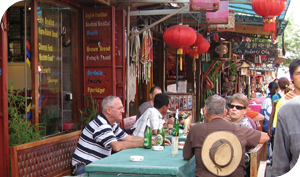 Many bars in China may be tourist-traps, but they are open and welcoming. |
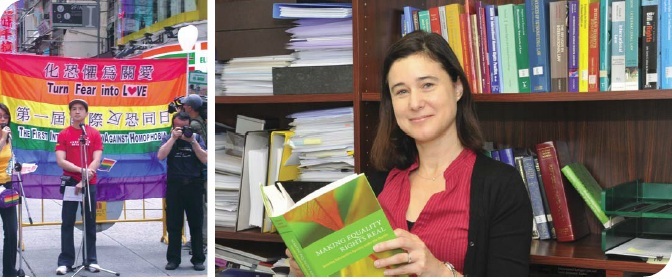 |
| Dr Kelley Loper |
Rights constrained |
|
Yet gay men face a lot of obstacles in being open about their sexual orientation. Dr Kong tells of attending an LGBT (lesbian-gay-bisexual-transgender) film festival in 2009 that was held in a remote village outside Beijing to escape the harassment and last-minute cancellations by authorities that had plagued previous festivals. "The police still came and hassled people. That was really LGBT without the camouflage of HIV - people with same sex desires and attractions," he says. "In China there's this contradiction. The Chinese government has allowed open sex forums and talk shows, but it still has a conservative and moralistic undertone. Police raids of gay places are very common, that's why gay bars and clubs in China are so transient. On the one hand you are told, be who you are, on the other hand, there are constraints, sanctions, limitations, controls." Even in Hong Kong, the LGBT community has problems with official acceptance, although there have been two enlightened court judgements in recent years ruling that certain provisions in the Crimes Ordinance related to homosexual sex violated the right to equality under the law, according to Kelley Loper, Assistant Professor in the Faculty of Law. She is researching sexual orientation discrimination in family law and also helped organize a conference at HKU last year with the UN Development Programme and HKU's Emerging Strategic Theme on Diversity Studies on human rights and HIV prevention among MSM in the Asia-Pacific region. Ms Loper points out that Hong Kong does not allow civil unions between same sex couples, which means they do not have such rights as decisions on medical care when one partner is sick or claims on insurance benefits or inheritance. Sexual orientation is also not included as a prohibited ground in Hong Kong's anti-discrimination laws. "It's still legal to refuse to hire somebody because of sexual orientation," she says. "I do think discrimination against the LGBT community is a big problem in Hong Kong. It's a problem in many societies, but there is a lack of legal protection here." |
These issues muddy the meaning of a gay identity. In Hong Kong, the gay community kept a low profile in the past, although it has started to take rights issues more seriously, as evidenced by the organizing of International Day Against Homophobia since 2005 and gay parades since 2008. In China, the men have higher ideals but they are hard to attain. Dr Kong says: "The gay scene in China is heavily dominated by the AIDS discourse and the economic divide [between urban and migrant or rural MSM]. A lot of Chinese gay men are trying to make sense of their desire. They may have an idea of a gay utopia where we are all 'comrades', but they don't realize initially how hard it's going to be. Being a man is tough, no matter if you are straight or gay." Chinese Male Homosexualities: Memba, Tongzhi and Golden Boy by Dr Travis Kong is published by Routledge. | 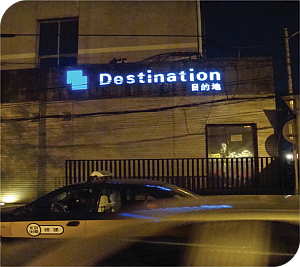 In contrast, gay bars in China are often low-key, but are still raided by police. |
| Next |